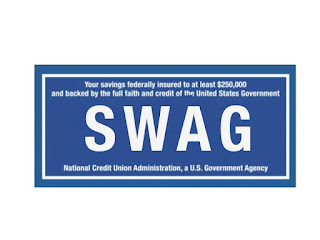 |
| Black Swan: Regulatory Perspective |
Senior economist (a certified Robusterian*) and policy advisor for the Federal Reserve Bank of Boston Paul S. Willen was quoted for the "we-know-better-than-you" theoretical elite: "If our goal is to prevent foreclosures, I can't think of anything more effective than requiring a down payment". (* see "robust"... meaning "written by an idiot".)
 |
| Dealing with the facts ... and the truth. |
The counter argument - that down payments do not significantly reduce the rate of default on properly underwritten loans - was voiced by Professor Roberto G. Quercia, Director of the Center for Community Capital at the University of North Carolina at Chapel Hill.
Mr. Willen had his august title, position, and sense of self-importance to bolster his opinion; Professor Quercia had the data and the facts on his side. (But as credit unions know from experience, sometimes the facts are only an inconvenience to a federal regulator.)
As the NYT article described, Quercia had, since 1998, been studying and tracking the performance of a large group of mortgages in a special program for low-income borrowers, typically those with a low or no down payment.* From 1998 through last year, 5.5 percent of the mortgages ended up in foreclosure. Sub-prime mortgages made during the last housing boom, regardless of down payment size, had far higher foreclosure rates, roughly 25%. Losses to borrowers in the study group which had made a 20 percent down payment were lower at 3.9%, but not significantly lower when the loan was carefully underwritten. *(For the record, those loans with little or no downpayment were charged 1/2 to 1% more to compensate for the implied extra risk, which proved to be more than adequate to cover the slight increase in losses.)
So, what's the point...































